- Home
- Suzanne Collins
The Hunger Games Trilogy Page 60
The Hunger Games Trilogy Read online
Page 60
The credit for the survivors’ escape has landed squarely on Gale’s shoulders, although he’s loath to accept it. As soon as the Quarter Quell was over—as soon as I had been lifted from the arena—the electricity in District 12 was cut, the televisions went black, and the Seam became so silent, people could hear one another’s heartbeats. No one did anything to protest or celebrate what had happened in the arena. Yet within fifteen minutes, the sky was filled with hoverplanes and the bombs were raining down.
It was Gale who thought of the Meadow, one of the few places not filled with old wooden homes embedded with coal dust. He herded those he could in its direction, including my mother and Prim. He formed the team that pulled down the fence—now just a harmless chain-link barrier, with the electricity off—and led the people into the woods. He took them to the only place he could think of, the lake my father had shown me as a child. And it was from there they watched the distant flames eat up everything they knew in the world.
By dawn the bombers were long gone, the fires dying, the final stragglers rounded up. My mother and Prim had set up a medical area for the injured and were attempting to treat them with whatever they could glean from the woods. Gale had two sets of bows and arrows, one hunting knife, one fishing net, and over eight hundred terrified people to feed. With the help of those who were able-bodied, they managed for three days. And that’s when the hovercraft unexpectedly arrived to evacuate them to District 13, where there were more than enough clean, white living compartments, plenty of clothing, and three meals a day. The compartments had the disadvantage of being underground, the clothing was identical, and the food was relatively tasteless, but for the refugees of 12, these were minor considerations. They were safe. They were being cared for. They were alive and eagerly welcomed.
This enthusiasm was interpreted as kindness. But a man named Dalton, a District 10 refugee who’d made it to 13 on foot a few years ago, leaked the real motive to me. “They need you. Me. They need us all. Awhile back, there was some sort of pox epidemic that killed a bunch of them and left a lot more infertile. New breeding stock. That’s how they see us.” Back in 10, he’d worked on one of the beef ranches, maintaining the genetic diversity of the herd with the implantation of long-frozen cow embryos. He’s very likely right about 13, because there don’t seem to be nearly enough kids around. But so what? We’re not being kept in pens, we’re being trained for work, the children are being educated. Those over fourteen have been given entry-level ranks in the military and are addressed respectfully as “Soldier.” Every single refugee was granted automatic citizenship by the authorities of 13.
Still, I hate them. But, of course, I hate almost everybody now. Myself more than anyone.
The surface beneath my feet hardens, and under the carpet of ash, I feel the paving stones of the square. Around the perimeter is a shallow border of refuse where the shops stood. A heap of blackened rubble has replaced the Justice Building. I walk to the approximate site of the bakery Peeta’s family owned. Nothing much left but the melted lump of the oven. Peeta’s parents, his two older brothers—none of them made it to 13. Fewer than a dozen of what passed for District 12’s well-to-do escaped the fire. Peeta would have nothing to come home to, anyway. Except me…
I back away from the bakery and bump into something, lose my balance, and find myself sitting on a hunk of sun-heated metal. I puzzle over what it might have been, then remember Thread’s recent renovations of the square. Stocks, whipping posts, and this, the remains of the gallows. Bad. This is bad. It brings on the flood of images that torments me, awake or asleep. Peeta being tortured—drowned, burned, lacerated, shocked, maimed, beaten—as the Capitol tries to get information about the rebellion that he doesn’t know. I squeeze my eyes shut and try to reach for him across the hundreds and hundreds of miles, to send my thoughts into his mind, to let him know he is not alone. But he is. And I can’t help him.
Running. Away from the square and to the one place the fire did not destroy. I pass the wreckage of the mayor’s house, where my friend Madge lived. No word of her or her family. Were they evacuated to the Capitol because of her father’s position, or left to the flames? Ashes billow up around me, and I pull the hem of my shirt up over my mouth. It’s not wondering what I breathe in, but who, that threatens to choke me.
The grass has been scorched and the gray snow fell here as well, but the twelve fine houses of the Victor’s Village are unscathed. I bolt into the house I lived in for the past year, slam the door closed, and lean back against it. The place seems untouched. Clean. Eerily quiet. Why did I come back to 12? How can this visit help me answer the question I can’t escape?
“What am I going to do?” I whisper to the walls. Because I really don’t know.
People keep talking at me, talking, talking, talking. Plutarch Heavensbee. His calculating assistant, Fulvia Cardew. A mishmash of district leaders. Military officials. But not Alma Coin, the president of 13, who just watches. She’s fifty or so, with gray hair that falls in an unbroken sheet to her shoulders. I’m somewhat fascinated by her hair, since it’s so uniform, so without a flaw, a wisp, even a split end. Her eyes are gray, but not like those of people from the Seam. They’re very pale, as if almost all the color has been sucked out of them. The color of slush that you wish would melt away.
What they want is for me to truly take on the role they designed for me. The symbol of the revolution. The Mockingjay. It isn’t enough, what I’ve done in the past, defying the Capitol in the Games, providing a rallying point. I must now become the actual leader, the face, the voice, the embodiment of the revolution. The person who the districts—most of which are now openly at war with the Capitol—can count on to blaze the path to victory. I won’t have to do it alone. They have a whole team of people to make me over, dress me, write my speeches, orchestrate my appearances—as if that doesn’t sound horribly familiar—and all I have to do is play my part. Sometimes I listen to them and sometimes I just watch the perfect line of Coin’s hair and try to decide if it’s a wig. Eventually, I leave the room because my head starts to ache or it’s time to eat or if I don’t get aboveground I might start screaming. I don’t bother to say anything. I simply get up and walk out.
Yesterday afternoon, as the door was closing behind me, I heard Coin say, “I told you we should have rescued the boy first.” Meaning Peeta. I couldn’t agree more. He would’ve been an excellent mouthpiece.
And who did they fish out of the arena instead? Me, who won’t cooperate. Beetee, an older inventor from 3, who I rarely see because he was pulled into weapons development the minute he could sit upright. Literally, they wheeled his hospital bed into some top secret area and now he only occasionally shows up for meals. He’s very smart and very willing to help the cause, but not really firebrand material. Then there’s Finnick Odair, the sex symbol from the fishing district, who kept Peeta alive in the arena when I couldn’t. They want to transform Finnick into a rebel leader as well, but first they’ll have to get him to stay awake for more than five minutes. Even when he is conscious, you have to say everything to him three times to get through to his brain. The doctors say it’s from the electrical shock he received in the arena, but I know it’s a lot more complicated than that. I know that Finnick can’t focus on anything in 13 because he’s trying so hard to see what’s happening in the Capitol to Annie, the mad girl from his district who’s the only person on earth he loves.
Despite serious reservations, I had to forgive Finnick for his role in the conspiracy that landed me here. He, at least, has some idea of what I’m going through. And it takes too much energy to stay angry with someone who cries so much.
I move through the downstairs on hunter’s feet, reluctant to make any sound. I pick up a few remembrances: a photo of my parents on their wedding day, a blue hair ribbon for Prim, the family book of medicinal and edible plants. The book falls open to a page with yellow flowers and I shut it quickly because it was Peeta’s brush that painted them.
Wha
t am I going to do?
Is there any point in doing anything at all? My mother, my sister, and Gale’s family are finally safe. As for the rest of 12, people are either dead, which is irreversible, or protected in 13. That leaves the rebels in the districts. Of course, I hate the Capitol, but I have no confidence that my being the Mockingjay will benefit those who are trying to bring it down. How can I help the districts when every time I make a move, it results in suffering and loss of life? The old man shot in District 11 for whistling. The crackdown in 12 after I intervened in Gale’s whipping. My stylist, Cinna, being dragged, bloody and unconscious, from the Launch Room before the Games. Plutarch’s sources believe he was killed during interrogation. Brilliant, enigmatic, lovely Cinna is dead because of me. I push the thought away because it’s too impossibly painful to dwell on without losing my fragile hold on the situation entirely.
What am I going to do?
To become the Mockingjay…could any good I do possibly outweigh the damage? Who can I trust to answer that question? Certainly not that crew in 13. I swear, now that my family and Gale’s are out of harm’s way, I could run away. Except for one unfinished piece of business. Peeta. If I knew for sure that he was dead, I could just disappear into the woods and never look back. But until I do, I’m stuck.
I spin on my heel at the sound of a hiss. In the kitchen doorway, back arched, ears flattened, stands the ugliest tomcat in the world. “Buttercup,” I say. Thousands of people are dead, but he has survived and even looks well fed. On what? He can get in and out of the house through a window we always left ajar in the pantry. He must have been eating field mice. I refuse to consider the alternative.
I squat down and extend a hand. “Come here, boy.” Not likely. He’s angry at his abandonment. Besides, I’m not offering food, and my ability to provide scraps has always been my main redeeming quality to him. For a while, when we used to meet up at the old house because we both disliked this new one, we seemed to be bonding a little. That’s clearly over. He blinks those unpleasant yellow eyes.
“Want to see Prim?” I ask. Her name catches his attention. Besides his own, it’s the only word that means anything to him. He gives a rusty meow and approaches me. I pick him up, stroking his fur, then go to the closet and dig out my game bag and unceremoniously stuff him in. There’s no other way I’ll be able to carry him on the hovercraft, and he means the world to my sister. Her goat, Lady, an animal of actual value, has unfortunately not made an appearance.
In my headset, I hear Gale’s voice telling me we must go back. But the game bag has reminded me of one more thing that I want. I sling the strap of the bag over the back of a chair and dash up the steps to my bedroom. Inside the closet hangs my father’s hunting jacket. Before the Quell, I brought it here from the old house, thinking its presence might be of comfort to my mother and sister when I was dead. Thank goodness, or it’d be ash now.
The soft leather feels soothing and for a moment I’m calmed by the memories of the hours spent wrapped in it. Then, inexplicably, my palms begin to sweat. A strange sensation creeps up the back of my neck. I whip around to face the room and find it empty. Tidy. Everything in its place. There was no sound to alarm me. What, then?
My nose twitches. It’s the smell. Cloying and artificial. A dab of white peeks out of a vase of dried flowers on my dresser. I approach it with cautious steps. There, all but obscured by its preserved cousins, is a fresh white rose. Perfect. Down to the last thorn and silken petal.
And I know immediately who’s sent it to me.
President Snow.
When I begin to gag at the stench, I back away and clear out. How long has it been here? A day? An hour? The rebels did a security sweep of the Victor’s Village before I was cleared to come here, checking for explosives, bugs, anything unusual. But perhaps the rose didn’t seem noteworthy to them. Only to me.
Downstairs, I snag the game bag off the chair, bouncing it along the floor until I remember it’s occupied. On the lawn, I frantically signal to the hovercraft while Buttercup thrashes. I jab him with my elbow, but this only infuriates him. A hovercraft materializes and a ladder drops down. I step on and the current freezes me until I’m lifted on board.
Gale helps me from the ladder. “You all right?”
“Yeah,” I say, wiping the sweat off my face with my sleeve.
He left me a rose! I want to scream, but it’s not information I’m sure I should share with someone like Plutarch looking on. First of all, because it will make me sound crazy. Like I either imagined it, which is quite possible, or I’m overreacting, which will buy me a trip back to the drug-induced dreamland I’m trying so hard to escape. No one will fully understand—how it’s not just a flower, not even just President Snow’s flower, but a promise of revenge—because no one else sat in the study with him when he threatened me before the Victory Tour.
Positioned on my dresser, that white-as-snow rose is a personal message to me. It speaks of unfinished business. It whispers, I can find you. I can reach you. Perhaps I am watching you now.
2
Are there Capitol hoverplanes speeding in to blow us out of the sky? As we travel over District 12, I watch anxiously for signs of an attack, but nothing pursues us. After several minutes, when I hear an exchange between Plutarch and the pilot confirming that the airspace is clear, I begin to relax a little.
Gale nods at the howls coming from my game bag. “Now I know why you had to go back.”
“If there was even a chance of his recovery.” I dump the bag onto a seat, where the loathsome creature begins a low, deep-throated growl. “Oh, shut up,” I tell the bag as I sink into the cushioned window seat across from it.
Gale sits next to me. “Pretty bad down there?”
“Couldn’t be much worse,” I answer. I look in his eyes and see my own grief reflected there. Our hands find each other, holding fast to a part of 12 that Snow has somehow failed to destroy. We sit in silence for the rest of the trip to 13, which only takes about forty-five minutes. A mere week’s journey on foot. Bonnie and Twill, the District 8 refugees who I encountered in the woods last winter, weren’t so far from their destination after all. They apparently didn’t make it, though. When I asked about them in 13, no one seemed to know who I was talking about. Died in the woods, I guess.
From the air, 13 looks about as cheerful as 12. The rubble isn’t smoking, the way the Capitol shows it on television, but there’s next to no life aboveground. In the seventy-five years since the Dark Days—when 13 was said to have been obliterated in the war between the Capitol and the districts—almost all new construction has been beneath the earth’s surface. There was already a substantial underground facility here, developed over centuries to be either a clandestine refuge for government leaders in time of war or a last resort for humanity if life above became unlivable. Most important for the people of 13, it was the center of the Capitol’s nuclear weapons development program. During the Dark Days, the rebels in 13 wrested control from the government forces, trained their nuclear missiles on the Capitol, and then struck a bargain: They would play dead in exchange for being left alone. The Capitol had another nuclear arsenal out west, but it couldn’t attack 13 without certain retaliation. It was forced to accept 13’s deal. The Capitol demolished the visible remains of the district and cut off all access from the outside. Perhaps the Capitol’s leaders thought that, without help, 13 would die off on its own. It almost did a few times, but it always managed to pull through due to strict sharing of resources, strenuous discipline, and constant vigilance against any further attacks from the Capitol.
Now the citizens live almost exclusively underground. You can go outside for exercise and sunlight but only at very specific times in your schedule. You can’t miss your schedule. Every morning, you’re supposed to stick your right arm in this contraption in the wall. It tattoos the smooth inside of your forearm with your schedule for the day in a sickly purple ink. 7:00—Breakfast. 7:30—Kitchen Duties. 8:30—Education Center, Room
17. And so on. The ink is indelible until 22:00—Bathing. That’s when whatever keeps it water resistant breaks down and the whole schedule rinses away. The lights-out at 22:30 signals that everyone not on the night shift should be in bed.
At first, when I was so ill in the hospital, I could forgo being imprinted. But once I moved into Compartment 307 with my mother and sister, I was expected to get with the program. Except for showing up for meals, though, I pretty much ignore the words on my arm. I just go back to our compartment or wander around 13 or fall asleep somewhere hidden. An abandoned air duct. Behind the water pipes in the laundry. There’s a closet in the Education Center that’s great because no one ever seems to need school supplies. They’re so frugal with things here, waste is practically a criminal activity. Fortunately, the people of 12 have never been wasteful. But once I saw Fulvia Cardew crumple up a sheet of paper with just a couple of words written on it and you would’ve thought she’d murdered someone from the looks she got. Her face turned tomato red, making the silver flowers inlaid in her plump cheeks even more noticeable. The very portrait of excess. One of my few pleasures in 13 is watching the handful of pampered Capitol “rebels” squirming as they try to fit in.
I don’t know how long I’ll be able to get away with my complete disregard for the clockwork precision of attendance required by my hosts. Right now, they leave me alone because I’m classified as mentally disoriented—it says so right on my plastic medical bracelet—and everyone has to tolerate my ramblings. But that can’t last forever. Neither can their patience with the Mockingjay issue.
From the landing pad, Gale and I walk down a series of stairways to Compartment 307. We could take the elevator, only it reminds me too much of the one that lifted me into the arena. I’m having a hard time adjusting to being underground so much. But after the surreal encounter with the rose, for the first time the descent makes me feel safer.

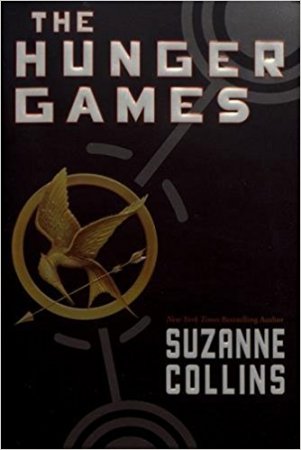 The Hunger Games
The Hunger Games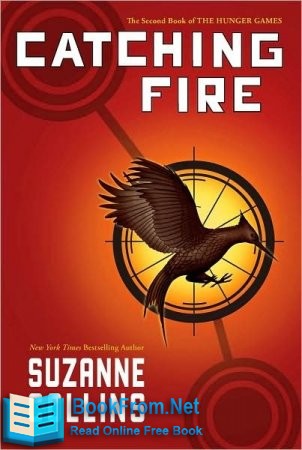 Catching Fire
Catching Fire Mockingjay
Mockingjay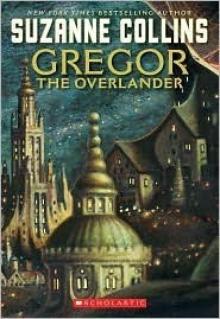 Gregor the Overlander
Gregor the Overlander Gregor and the Curse of the Warmbloods
Gregor and the Curse of the Warmbloods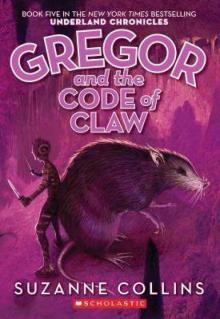 Gregor and the Code of Claw
Gregor and the Code of Claw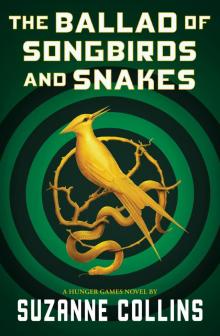 The Ballad of Songbirds and Snakes
The Ballad of Songbirds and Snakes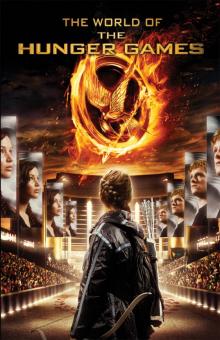 The World of the Hunger Games
The World of the Hunger Games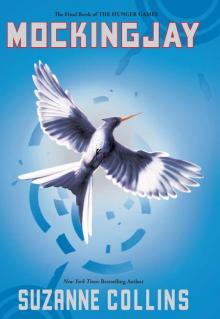 Mockingjay (The Final Book of The Hunger Games)
Mockingjay (The Final Book of The Hunger Games)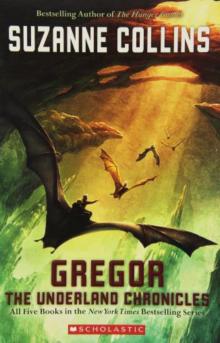 The Underland Chronicles: Books 1-5 Paperback Box Set
The Underland Chronicles: Books 1-5 Paperback Box Set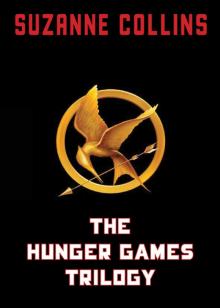 The Hunger Games Trilogy
The Hunger Games Trilogy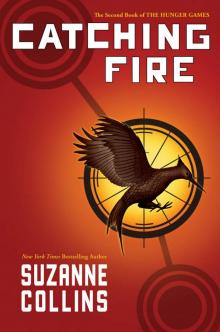 Hunger Games 02 - Catching Fire
Hunger Games 02 - Catching Fire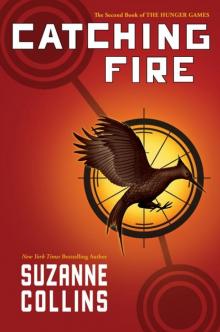 Cathing Fire thg-2
Cathing Fire thg-2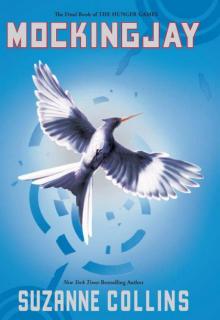 Hunger Games 03-Mockingjay
Hunger Games 03-Mockingjay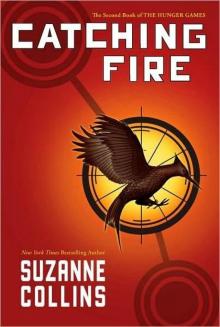 Hunger Games 2 - Catching Fire
Hunger Games 2 - Catching Fire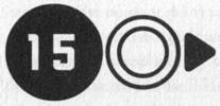 Hunger Games 01 - The Hunger Games
Hunger Games 01 - The Hunger Games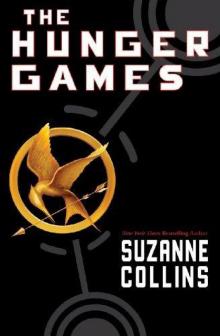 Hunger Games 01-The Hunger Games
Hunger Games 01-The Hunger Games